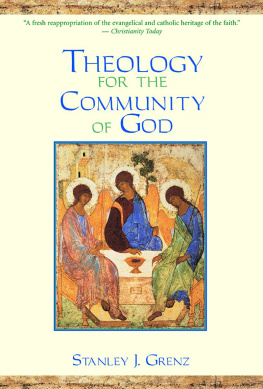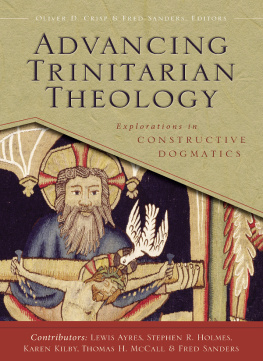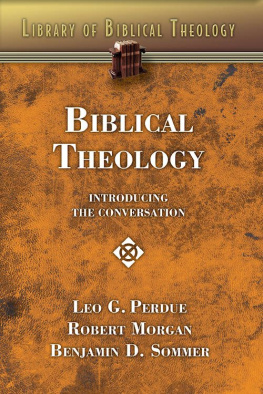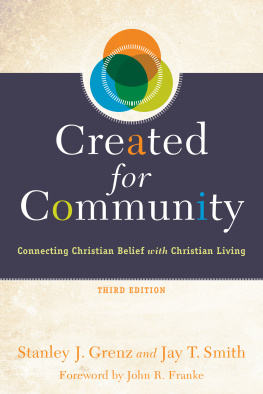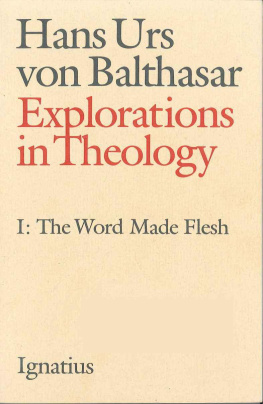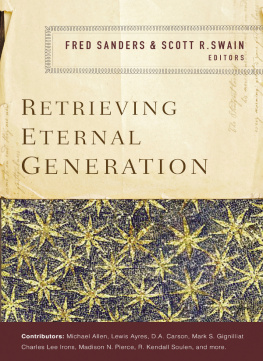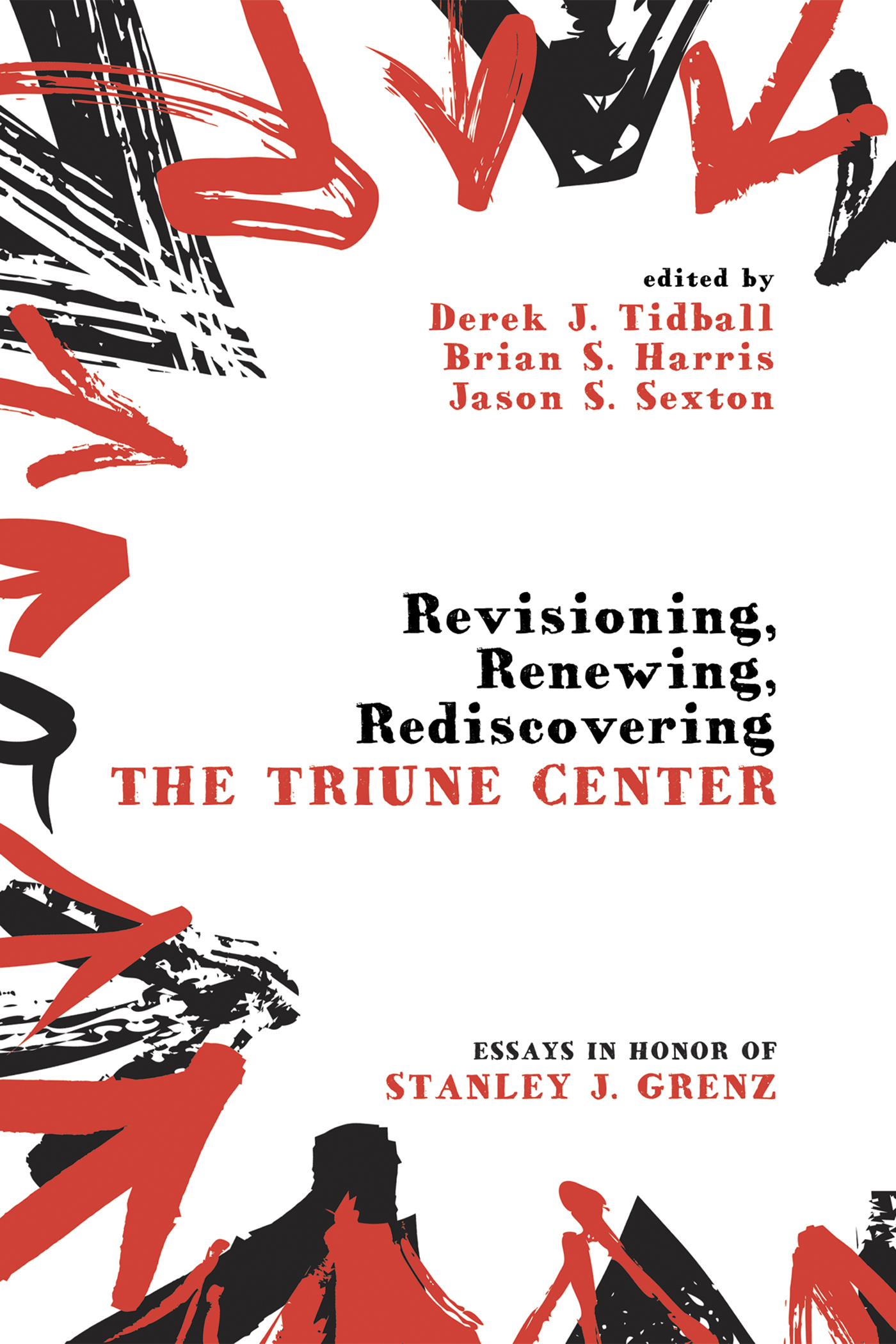Stanley J. Grenz
A Theological Biography
Brian S. Harris, Jason S. Sexton, and Jay T. Smith
Stanley J. Grenzs Life, Career, and Ministry
S tanley James Grenz was born January 1950 , in Alpena, Michigan to Richard and Clara Grenz. The youngest of three siblings, Grenz grew up in the home of a North American (German) Baptist pastor and moved several times, from Michigan to the Dakotas, to Montana, and Colorado. Grenzs childhood, far from that of the pastors kid sometimes caricatured in popular media, was imbued with a warm hearted piety. While his writings show few references to the spirituality of his childhood, the importance of his rearing in a close knit, pietistically-oriented Baptist family is obvious to those who knew him. Richard and Clara Grenz sought to provide a home and family life for their children that was permeated by a deeply devotional and conversionist spirituality that marked the German Baptist heritage.
After completing high school, Grenz attended the University of Colorado in Boulder with the intention of pursuing a career as a nuclear physicist. His mind was sharp enough and his grades high enough to make such a career possible, yet ultimately a call to ministry experienced in 1971 forced a change in direction. During this time, Grenzs study at the University of Colorado took a turn from physics to philosophy and he came under the influence of Ed Miller, a professor of philosophy at the university. Miller fondly recalls his time with Grenz and the cultivation of a relationship that would grow deeply during the balance of Grenzs life, later yielding a collaborative book project. He recounts the decision he made to bequeath Karl Barths personal sitting chair to Grenz, but Grenz died before being able to take possession of it.
While at the University of Colorado, Grenz toured with a North American Baptist sponsored musical group, Gods Volunteers, where he met Edna Sturhahn, whom he would marry in December 1971 . In his March eulogy, Brian McLaren emphasized Grenzs deep love for Edna and his deeply spiritual way of life. McLarens reflection is worth repeating in its entirety:
One topic of conversation I especially remember from that afternoonStans love for his wife. At that point, I hadnt met Edna yet, but Stan talked with enthusiasm about how gifted she was, and how much he wanted to support her in her own ministry and leadership in the years ahead. When I met Edna a year or two later, I was immediately impressed by her gentleness, depth, class, and courage, and I could see why Stan didnt see her as his gracious companion only, but also as his colleague and partner in ministry.
Grenzs loving relationship to his wife was generally indicative of his passion for his family, church, vocation, and colleagues. After graduation in 1973 from the University of Colorado (Phi Beta Kappa), Grenz earned the Master of Divinity in 1976 at the Conservative Baptist Theological Seminary (later becoming Denver Seminary). While in Denver, his love of Scripture and passion for theological method were developed under the influence of his professor Gordon Lewis and President Vernon Grounds. As he approached graduation from seminary, Grenzs advisor at the University of Colorado, Ed Miller, introduced him to Wolfhart Pannenberg in October during Pannebergs U.S. speaking tour. This meeting and consequent study with Pannenberg would establish Grenzs theological trajectory in significant ways.
Stan and Edna moved to Munich in 1976 in order for Stan to pursue doctoral studies with Pannenberg. Their son Joel was born in Munich, August 1978 . Pannenberg encouraged Grenz, as he did all of his students, to study an aspect of his own theological interest and trajectory. At this time Pannenberg was working on ecclesiology, and so for his research Grenz chose to study the theology and ecclesiology of Isaac Backus, the North-American Puritan and Baptist theologian, which work was later published by Mercer University Press. while virtually all have acknowledged the creativity of his project for the sake of serving the church in meaningful and imaginative ways.
In June 1980 Grenz graduated from the University of Munich. But he returned to Canada earlier in order to take up a brief stint as pastor of Rowandale Baptist Church in Winnipeg, MB, from January 1979 to June 1981 , during which time his daughter Corina was born, December 1979 . While in Winnipeg he also taught adjunct theology courses for The University of Winnipeg and at Providence Theological Seminary (formerly Winnipeg Theological Seminary) from 1980 , after which time Grenz began his career as a professor of theology at the North American Baptist Theological Seminary in Sioux Falls, South Dakota. He taught in Sioux Falls from 1981 as Professor of Systematic Theology and Ethics. Following a year-long sabbatical in Munich as a Fulbright Scholar ( 1987 ), Grenz published the proceeds as a book on Pannenbergs systematic theology with Oxford University Press in 1990 . Following his nine-year tenure at North American Baptist Theological Seminary, Grenz accepted an appointment to Carey Theological College and Regent College in Vancouver, BC as Pioneer McDonald Professor of Baptist Heritage, Theology and Ethics. Grenzs initial twelve years in Vancouver ( 1990 ) would inaugurate his prolific writing careereffectively a research post that allowed him to cultivate his rigorous publication agenda and regular speaking regimen at other academic institutions, events, and churches. During this period, Grenz penned fourteen books, and for a portion of it held an affiliate appointment at Northern Baptist Seminary in Lombard, Illinois as Professor of Theology and Ethics ( 1996 ). In 1999 he received a Henry Luce III Fellowship in the theology program, the first scholar from a Canadian institution to receive the award, which enabled the completion of the first installment of his Matrix in Christian Theology series with Westminster John Knox.
Things changed with an appointment in 2002 as Distinguished Professor of Theology at Baylor University and the George W. Truett Theological Seminary in Waco, Texas, where Grenzs career was prepared to transition to a different league of academic engagement. Here his responsibilities were primarily to teach at Truett Seminary and work with Baylors department of religion and its doctoral program.
Amidst these significant challenges that seemed to have been either misunderstandings or plain shifts in agreement and emphasis for Grenzs role, which he labelled those tumultuous weeks in early 2003 , he began to reconsider whether Waco was the best place for him. Through much soul-searching, it became clear that Edna was not able to find a position in Waco where she could meaningfully exercise her gifts vocationally, as she had earlier in her role as Director of Ministry and Worship at First Baptist Church, Vancouver. Through the developments that took place, Stan and Edna understood what seemed to be signs from God that they were to remain in Vancouver, even if so doing meant giving up the post at Baylor. So while professionally located at Baylor for a year, Grenzs appointment here didnt last beyond the one year and so never became established. On May 2003 , Grenz entered into a letter of understanding with Carey Theological College to officially return to the faculty of Carey Theological College on August 2003 , once again serving as Pioneer McDonald Professor of Theology.


